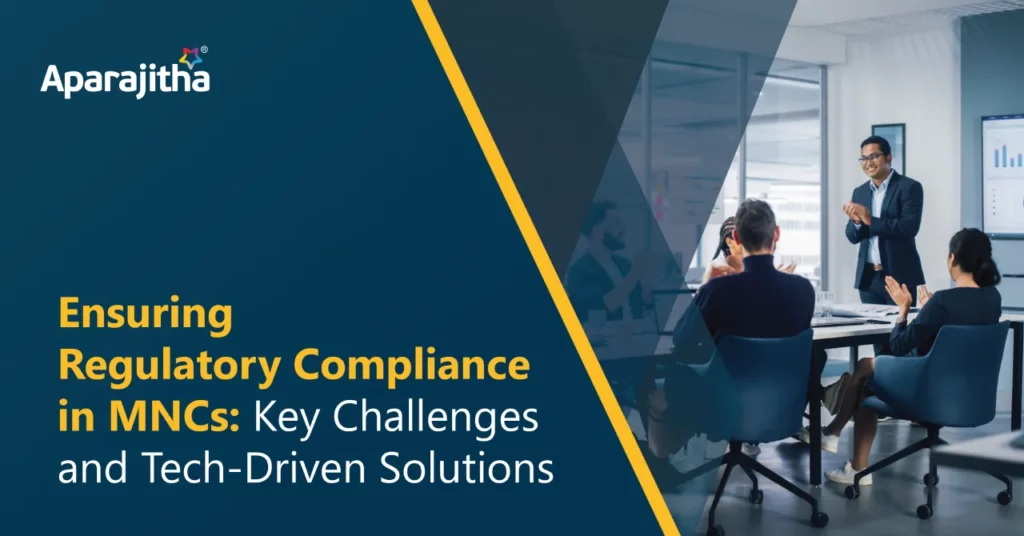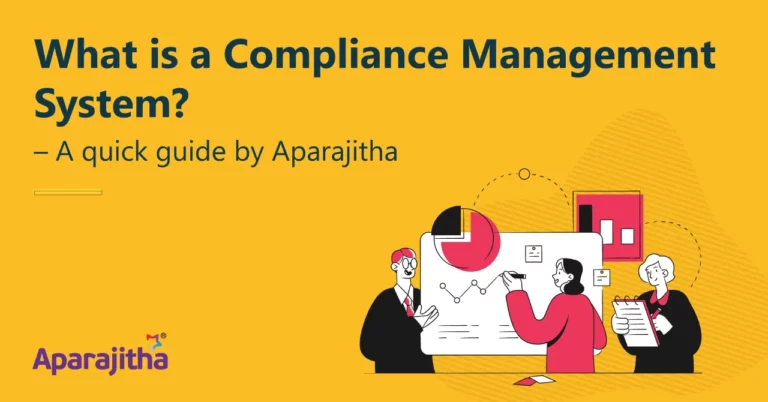As the global business landscape evolves with rapid developments and innovations, the regulatory environment has similarly expanded with a growing number of legal updates and compliance regulations by industries. This trend impacts all industries, but it presents unique challenges for multinational corporations (MNCs). In the past three years alone, 1,330 foreign companies and subsidiaries of foreign companies have closed operations. While there can be various reasons for these closures, non-compliance is one of the top few, often resulting in hefty fines, reputational damage, legal consequences, and even the termination of licenses.
MNCs operate in complex business regulatory frameworks, often spanning various domains such as:
- Corporate Governance
- Financial Reporting and Accounting
- Data Privacy and Cybersecurity
- Labor and Employment
- Environmental, Social, and Governance (ESG)
- Industry-Specific Regulations
Understanding these complexities is crucial for staying compliant and minimizing risks. This article will explore:
- Key compliance challenges faced by MNCs.
- Risks and trends in regulatory violations.
- Benefits of outsourcing compliance management.
- Proven tech-driven solutions for MNCs.
Key Compliance Challenges for MNCs
For MNCs with extensive geographic footprints, ensuring regulatory compliance across all locations—especially in remote areas—can be daunting. The traditional approach of assigning in-house personnel to manage compliance is not only costly but also inefficient due to the constant and complex nature of regulatory changes. The main challenges include:
- High Operational Costs: Setting up an in-house compliance team is expensive, particularly when factoring in the need for continuous consultation to stay updated on regulatory changes.
- Knowledge Gaps: In-house teams may struggle to keep pace with the latest regulations, leading to compliance lapses.
- Risk of Non-Compliance: Handling unexpected audits or notices without expert knowledge and timely updates can be risky and time-consuming.
- Cumbersome Compliance Processes: Liaising with authorities, navigating bureaucratic red tape, and managing extensive documentation make compliance processes burdensome and time-consuming.
- Limited Visibility for Global Headquarters: Ensuring visibility and real-time access to compliance status for global headquarters or top management across various locations is challenging, potentially leading to compliance oversights, heavy fines, legal risks for directors, and reputational damage.
Compliance Risks and Trends for MNCs
Non-compliance can lead to severe penalties, legal actions, and reputational damage. Recent trends, highlighted by high-profile MNCs facing non-compliance issues, have underscored their heightened vulnerability to specific violations in industry compliance regulations. These incidents demonstrate the critical need for robust compliance management to avoid severe penalties, legal repercussions, and reputational damage. Here’s a closer look at some of the most pressing compliance issues:
| Regulation | Risks |
| Foreign Exchange Management Act (FEMA Act) | Significant penalties imposed for foreign exchange violations by the Directorate of Enforcement |
| Labour Laws | Financial and reputational damage from high-profile cases involving inadequate working conditions and labour rights breaches. |
| Data Privacy Regulations | Substantial fines and loss of consumer trust due to rising enforcement actions and scrutiny on data protection practices under The India Digital Personal Data Protection Act 2023. |
| Prevention of Money Laundering Act (PMLA) | Increased penalties and enforcement actions for lapses in anti-money laundering measures |
| Companies Act | Enhanced scrutiny and fines for violations related to corporate governance and financial disclosures. |
| Securities and Exchange Board of India (SEBI) Act | Heavy penalties for securities market violations and strict enforcement by SEBI. |
Benefits of Outsourcing Compliance Management
In today’s dynamic regulatory environment, staying compliant is increasingly challenging. While it is possible to manage compliance in-house, outsourcing offers several advantages:
| In-House Compliance |
Outsourced Compliance |
| High Costs: Significant operational costs for maintaining in-house teams across multiple locations. | Cost Efficiency: Avoid logistical expenses and streamline operations by leveraging external expertise. |
| Knowledge Gaps: Internal teams may lack up-to-date knowledge on ever-changing regulations. | Expertise: Access to specialized knowledge and expertise in navigating complex regulatory landscapes. |
| Limited Resources: In-house teams may struggle with the breadth of compliance requirements. | Scalability: Outsourcing provides scalable solutions that can adapt to your company’s needs, offering a strategic advantage by allowing you to focus on core activities while experts handle compliance. |
| Government Coordination: Maintaining relationships with government officials can be challenging. | Professional Engagement with Regulatory Bodies: Ethical and professional relationships with government authorities, ensuring smooth interactions that facilitate knowledge sharing and support good governance. |
| Manual Processes: Risk of human error and inefficiencies in compliance management. | Tech-Driven Solutions: Regulatory compliance software with Automated systems and real-time updates enhance accuracy and efficiency. |
Tech-Driven Solutions: Essential for Navigating the Future Regulatory Landscape
In the digital age, managing compliance through tech-driven solutions is not just advantageous—it’s essential. Digital compliance platforms provide:
- Automated Updates and Deadline Tracking: Ensures timely compliance with regulatory changes.
- Comprehensive Dashboards: Offers top management real-time access to compliance statuses, helping them stay informed and stress-free with customised reports.
- Streamlined Audits: Facilitates easier audit processes with well-organized documentation and reports.
- Remote Compliance Management: Enables effective compliance management even in remote areas, ensuring no branch is left non-compliant.
Aparajitha: The Compliance Powerhouse for MNCs
With over two decades of experience, Aparajitha has established itself as a leader in compliance solutions tailored specifically for MNCs with diverse and remote operations. Here’s how we stand out:
- PAN-India Presence: We ensure 100% compliance across all regions, including remote areas.
- Expert Team: Our legal experts and compliance officers provide real-time support and updates.
- Comprehensive Compliance Solutions: From labour laws to fiscal, corporate, and environmental regulations, we manage the full spectrum of compliance.
- Risk Mitigation: We proactively manage compliance, identifying and mitigating risks before they escalate.
- Digital Compliance Platforms: Our advanced tools, like Simpliance, offer real-time insights, automated updates, and deadline tracking, optimizing your compliance management.
- Scalable Solutions: We tailor our services to fit your organization’s specific needs, ensuring compliance across all levels and locations.
Ready to Elevate Your Compliance Strategy?
Partner with Aparajitha today to ensure 100% compliance across all your branches. With our expert team and cutting-edge technology, we’ll help you navigate the complexities of compliance, reduce risks, and turn challenges into opportunities.
Enquire now to schedule a consultation and discover how Aparajitha can support your comprehensive compliance needs.







